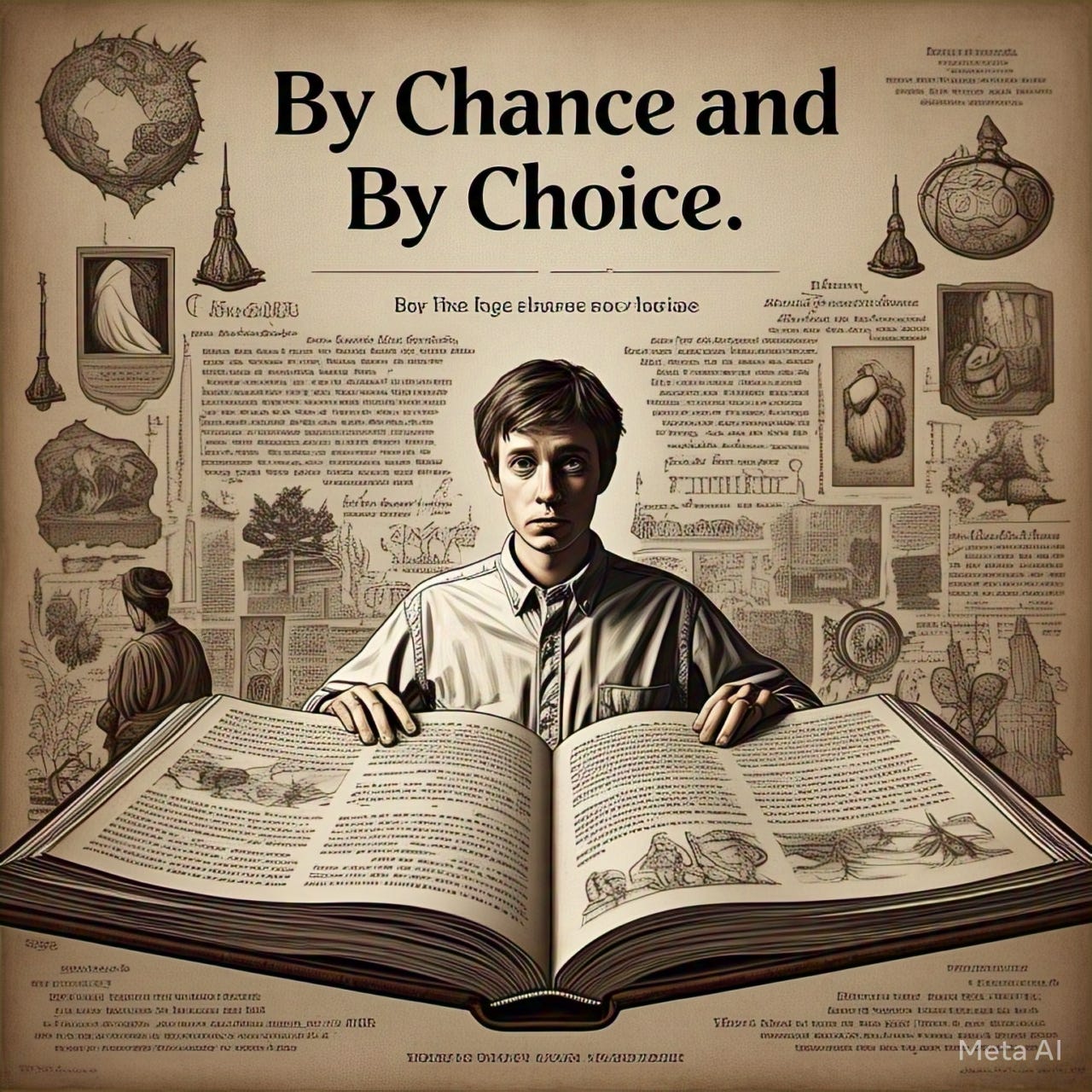By Chance and by Choice
By Chance and By Choice
From Colombo to Sydney: A Life Transformed
By Chance and By Choice
From Colombo to Sydney: A Life Transformed
Denzil had just finished The Mystic Masseur. He read it slowly, like one might sip strong, slightly bitter tea on a quiet afternoon, letting the strange flavours linger. Ganesh Ramsumair — awkward, unremarkable, almost pitiable in the beginning — had become, by some peculiar logic of Naipaul’s world, a revered figure: writer, mystic, politician, Member of the British Empire. It was absurd. And yet, strangely believable. It was the kind of story that seemed to mock its characters even as it gently elevated them.
Sitting back after the final page, Denzil thought of his own life, which had never followed a straight line. His journey had zigzagged — a boy from a village in Colombo, who had once chased dragonflies and picked marbles from the garden, now lived in Sydney’s cool, civil order. Like Ganesh, he had been many things — son, technician, father, writer, sometimes unsure of which mask he wore most honestly.
He remembered how it had all begun — those scribbled recollections of growing up in a house where the mornings were noisy and the nights oddly solemn. There were accounts of those raw, unsorted years in Dubai, where he had become a man almost by accident. And the later years — with the sound of children’s laughter in sunlit backyards, and the quiet ache of adulthood settling in like evening dew.
But what had shaped him, he often thought, wasn’t only effort or ambition. It was a drift. Serendipity. The decisions of men long dead.
His maternal grandfather, for instance. A man who could have spent his life tilling the warm red soil of their village, but instead chose chalk and a blackboard. In 1915, when the world was convulsing in distant battles, this man, not yet old, turned toward education. That single turn echoed through generations. Through the soft insistence of inheritance, it gave Denzil a lifelong hunger for books. The old man’s library — full of mothballs and meaning — had stirred in Denzil an itch for language, for knowing.
And then, there was the warmth of women. His paternal grandmother, whose creased hands smelled faintly of coconut oil and curries, had taken it upon herself to shepherd him through early life. There was his aunt—his mother’s sister — who spoke to him not as a nephew but as something closer, more cherished. It was from these women, he realised, that he learned a tenderness the world rarely encouraged in boys.
He had not chosen a boarding school. It had been chosen for him by the tense domestic quiet that had followed his maternal grandmother’s arrival, and her increasing madness, which had made the family home unliveable. The Christian Brothers’ distant and austere school had seemed a haven. And there, in that monastic silence, he met the young clergyman — a man of gentle intellect who saw something in him. That was when his love of English deepened. It is not just the language but the world it opened: the cadences, the subtlety, and the capacity to remake memory into meaning.
Later, the incident. It didn’t need naming anymore. Boarding school could be cruel, and carers sometimes crueller. But Denzil, unlike the boy he had been before, chose to leave. He remembered the surprise on his friends’ faces — that he had spoken up and had walked away. More surprising still was his parents’ support. That quiet solidarity had meant more to him than any victory.
The years that followed, back with his parents, in Colombo, were strangely golden. Perhaps because he was no longer a boy, nor yet a man, and the world, though uncertain, was still wide. He made friends easily. He helped where he could. And beneath it all was that steady desire—to get out, move forward, and find something more.
The chance came, as so many things did, under the haze of drink and casual conversation. A friend spoke of Dubai. Denzil said yes.
Dubai was hot and harsh and full of possibility. A city made of speed and speculation. Another chance meeting brought him a job in a bank. And another — a conversation in a manager’s office — opened the world of computers. “Denzil,” the man said, almost dismissively, “what you’re doing now — anyone can do it. Come, try something new.” He had no experience. But he said yes. That, yes, more than any other, altered the course of his life.
Then, she appeared — the woman who would become his wife. That too, mysteriously, such things happen: a look, a conversation, a shared silence. And from that point on, it was not only about him anymore. Four children, each carrying some flicker of his past and strength. The move to Australia was not an accident this time, but intentional. A decision made with a quiet clarity. A final shift, perhaps.
And now, years later, with the book closed on his lap, Denzil saw something familiar in Ganesh’s farcical rise, not in the details, but in the texture — the accidental, absurd dignity of a life shaped more by winds than maps.
He smiled. In the end, it was not about where you began. Nor even where you ended. But how did you remember the in-between?

Comments
Post a Comment